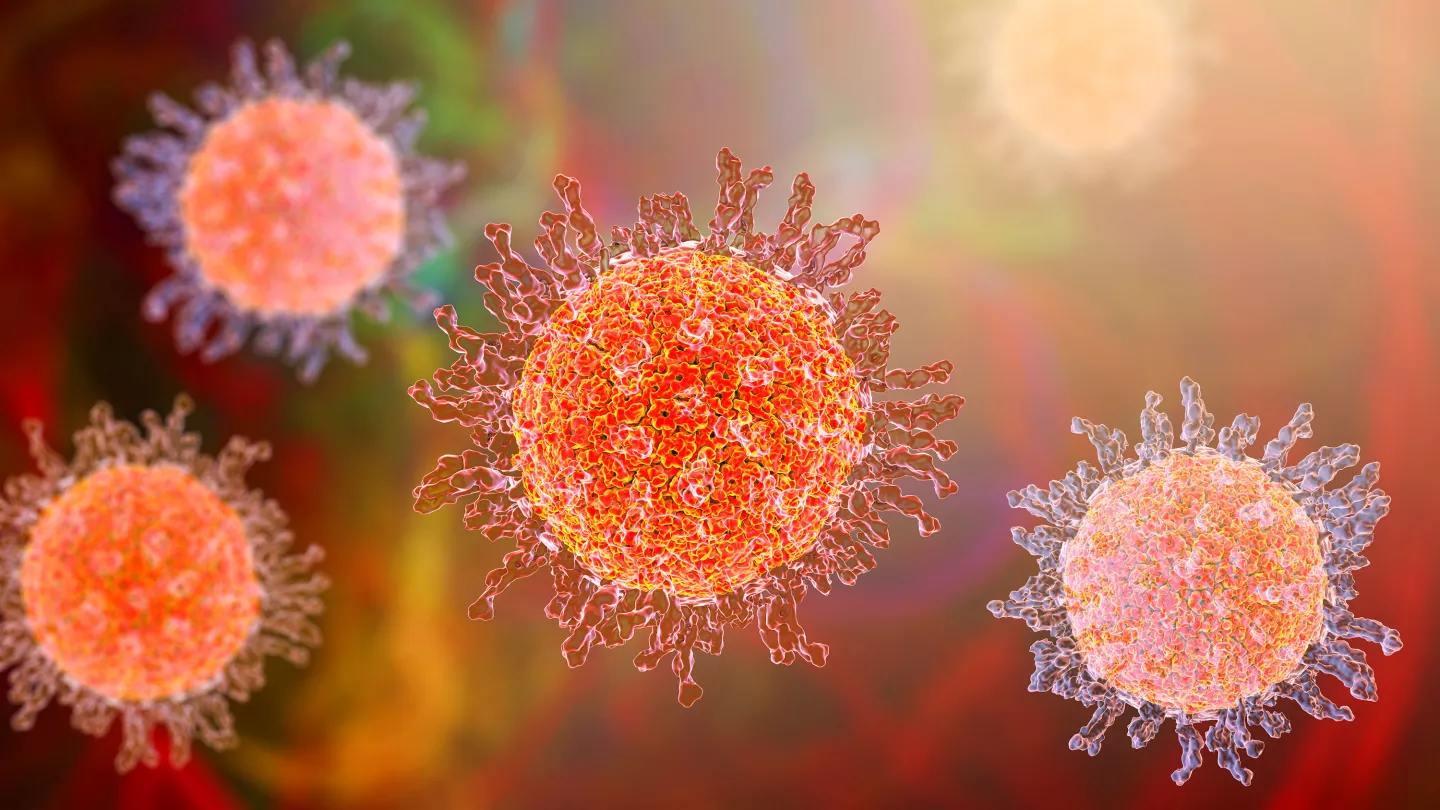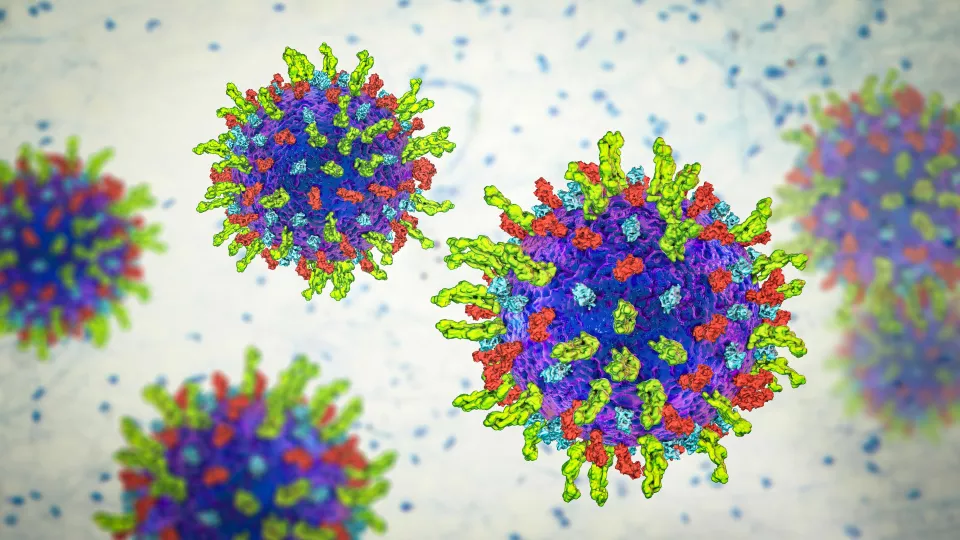News Brief
Novel Mouse Model Could Lead to Effective Herpes Vaccine
October 8, 2024

No vaccines have yet proven effective in preventing herpes simplex virus (HSV) infections. The viruses cause diseases (oral and genital herpes) that involve painful and often recurring blisters as well as potentially blinding eye infections and infections of the brain. Developing a safe and effective vaccine requires a mouse model that duplicates what happens after people are infected: After residing in a latent (inactive) form in sensory nerves, herpes viruses periodically reactivate and replicate to cause new lesions or spread to new sites. In mice, however, latent herpes viruses don’t naturally reactivate.
Betsy Herold, M.D., and colleagues have now overcome that limitation by developing a mouse model in which repeated sublethal injections of either HSV-1 or HSV-2 closely duplicates the human immune response to herpes virus infection. In previous research, Dr. Herold’s team discovered that an effective herpes vaccine must elicit antibodies associated with an immune response called antibody-dependent cell-mediated cytotoxicity (ADCC). In ADCC, antibodies target and bind to antigens on the surface of infected cells (in this case, cells infected with HSV); immune-system cells then recognize the cell-bound antibodies and destroy the infected cells.
In the new study, led by Aakash Mahant, Ph.D., the researchers saw that initial infection in mice resulted only in neutralizing antibody responses; however, repeated exposure to herpes virus led the mice to develop ADCC antibodies, similar to what the researchers had previously observed in people. In addition, the researchers isolated immune serum obtained after the first exposure or following repeated exposures, transferred the serum to uninfected mice, and then challenged those mice with herpes virus. Only the serum obtained after repeated exposure—which contained ADCC-mediating antibodies—protected the mice. The results confirm the critical role played by the ADCC immune response in protecting against herpes infection and provide an important new animal model for preclinically evaluating and developing therapeutic herpes virus vaccines. The study published online on October 1 in the journal Vaccines.
Dr. Herold is professor of pediatrics, of obstetrics & gynecology and women’s health, of microbiology & immunology, and holds the Harold and Muriel Block Chair in Pediatrics at Einstein and is vice chair for research and chief of infectious diseases at Einstein and the Children’s Hospital at Montefiore. Dr. Mahant is a postdoctoral research fellow in Dr. Herold’s lab.
Albert Einstein College of Medicine has intellectual property related to this research and is seeking licensing partners able to further develop and commercialize this technology. Interested parties can contact the Office of Biotechnology and Business Development at biotech@einsteinmed.edu



